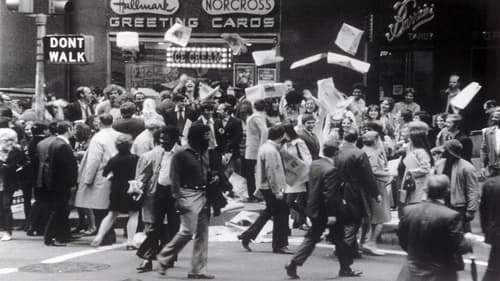
Director of Photography
Three no-budget semi-professional filmmakers finally get their due in this witty but respectful documentary. Director Frederic Sojcher visits three fellow Belgian auteurs whose ambitions outstrip their budgets, or their recognition. Max Naveaux is a projectionist who decided to take a stab at making movies himself, putting together small-scale war films whose realism was heightened by the fact that the Belgian Ministry of Defense gave him permission to use real bullets for one of his movies. Schoolteacher Jacques Hardy has dabbled in creating film noir, costume horror, and comic-book adventures, most starring his friend Christian Vranken, who makes his living as a church caretaker and insists on casting approval for his female co-stars. And Jean-Jacques Rousseau is a self-styled surrealist whose commitment to obscurity is great enough that he insists on being interviewed while wearing a ski mask.

Director of Photography
A young woman tries to ease herself out of the closet without terrifying her parents in the process in this comedy-drama. The year is 1969, and Sacha (Marie Bunel) is a young Belgian woman living in Canada. Sacha's family sent her to Canada to attend medical school, but she hasn't had the heart to tell them that she's dropped out of college to devote herself to her new interest in photography. Sacha also hasn't told her parents that she's a lesbian -- and that she has a new girlfriend, Odile (Macha Grenon). Odile is tired of being kept a secret, and insists that Sacha tell her parents the truth before American astronauts land on the moon in a few months -- or else. Sacha flies home to Belgium for a visit, planning to come clean to her folks, but she discovers they've arranged a huge welcome home party for the entire neighborhood. With everyone so excited that the soon-to-be-doctor is paying them a visit, Sacha wonders when the time will be right to give her family the news.

Cinematography
An ode to musicals past. Handsome men spend their time in a beautiful manor.

Cinematography
All of the time and effort put forth to stage a musical is chronicled here in this bright and funny French outing. The story is set at a shopping mall where people audition for an upcoming show. Afterwards, they are seen going through the grueling routines of learning the music and rehearsing.

Director of Photography
A celebration of the male form. A series of observations of men, filmed in beautiful black and white, with an almost total absence of the spoken word.

Director of Photography
Samy Szlingerbaum made his film Dakh-Brisel (Brussels-Transit) in 1980, thirty years after any Yiddish feature film had been produced. Szlingerbaum felt that the only way he could relate the story of his family’s search for refuge after World War II was in Yiddish. This Belgian-based filmmaker, deeply impacted by New York experimental cinema, gives us a masterful blend of powerful drama and stark documentary to tell the story of postwar European Jewry. Home, as it had been, no longer exists, and all that Samy’s family wants is a place in which to sink new roots.

Director of Photography
Several young men and women arrive one after the other at Hôtel des Acacias, full of hope, desire and vitality. In the bustle of this hotel, everyone is looking for love. Hôtel des Acacias was an exercise guided in 1982 by Chantal Akerman at Belgium’s INSAS audio-visual college.

Director of Photography
Francia se para. Todo el mundo deja de trabajar y cada uno reflexiona. Se trata de construir una nueva sociedad basada en otros valores y estructurada de un modo diferente. Pero, ¿es posible?

Director of Photography
"It's a very simple story, shot in a quiet street in Brussels. People waiting for the bus that is late, talking to each other, trusting each other, talking about the weather and giving each other practical tips. It is life as it is, in its troubling banality, that Van Antwerpen shows us. " (Luc Honorez, Le Soir, 1974).







